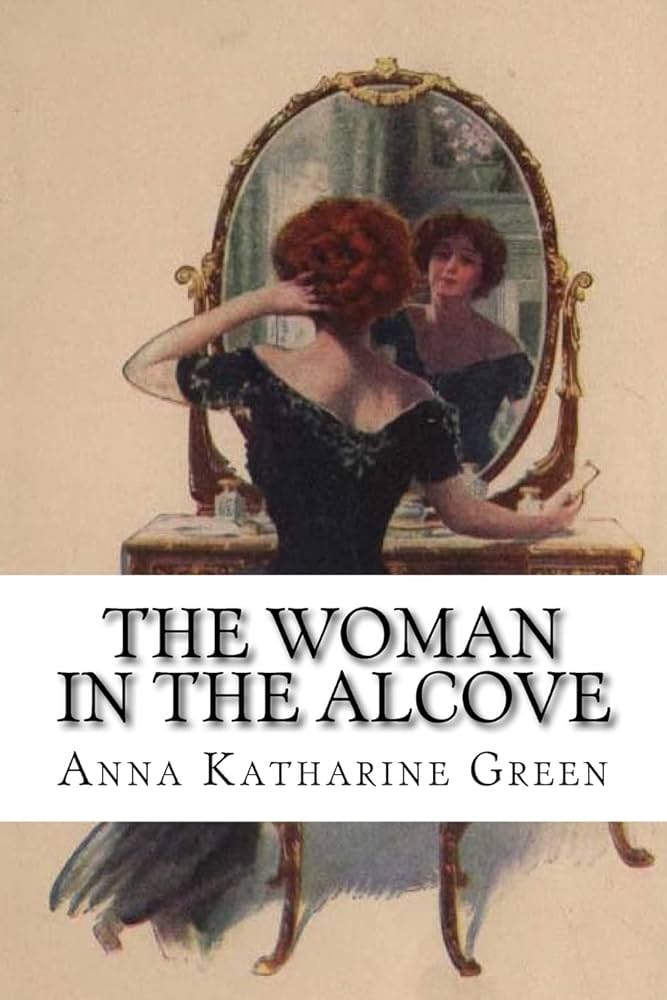Chapter XVI — The woman in the Alcove
byChapter XVI — The woman in the Alcove finds the narrator standing before the Fairbrother house with a gaze sharpened by recent revelations and a heart heavy with doubt. The building, tucked along Eighty-sixth Street, now looms in her mind as more than mere brick and window. Its presence, once ordinary, pulses with implication after a late-night tale spun by the inspector—a tale of shadowed movement, hidden exchanges, and a possible escape that may have passed through those very walls. The house doesn’t welcome scrutiny. Its shutters close off curiosity, its silence dares questions to be asked. The narrator, though unable to breach its interior, imagines secret staircases, muffled footsteps, and the whispered fear of those harboring secrets within. Even from the outside, the building reveals a story—not through what is seen, but through what cannot be seen.
As her steps retreat from the property, her thoughts remain. Her mind shifts from walls to people, most pressingly Mr. Grey. The inspector’s assessment painted him with understanding, even sympathy, but the narrator’s heart lingers in conflict. She has spent chapters doubting him, building theories around his presence, his movements, and the subtle disconnects in his behavior. Now, facing the possibility that she has misjudged him, she must confront what that means. She tries to see him as the inspector does, a man burdened more by sorrow than sin. Yet her instincts refuse quiet. She cannot unsee what she once saw, nor easily undo the trust she placed in her original suspicions. As her thoughts sway, Mr. Durand’s image returns—a man still ensnared by accusation, still awaiting her advocacy, her clarity.
In this moment, the narrator’s personal journey mirrors the case itself—fragmented, fraught with second-guessing, and shadowed by incomplete truths. She questions not only Grey’s role but her own. Did she lead the authorities astray? Did her belief in justice blind her to the full picture? Miss Grey’s quiet strength in their recent meeting adds another dimension. That young woman’s concern for her father, the unspoken weight she carries in his absence, humanizes the very man the narrator once regarded with doubt. Her presence invites compassion and complicates certainty. And in that moment of shared vulnerability, the narrator begins to recognize how layered this mystery truly is.
Yet awareness does not relieve responsibility. With knowledge of Mr. Grey’s impending departure, the narrator stands at an ethical fork. Should she inform the authorities? Should she protect a man whose truth she has yet to fully know? Her inner conflict is no longer just about solving a crime—it is about honoring conscience while navigating suspicion. The world she’s moved through, once built on solid inquiries and clean divisions between guilt and innocence, has grown murky. Grey might be innocent. He might not. And that uncertainty carries the weight of every decision she now makes.
The chapter deepens not just the mystery surrounding the Fairbrother house, but also the narrator’s internal evolution. Her transition from investigator to empathetic observer is quiet, yet profound. No longer does she see the world in strict lines. Trust and doubt now blur, truth hides behind kindness, and motives are more complex than appearances suggest. The shadows on the street mirror the ones in her mind. They do not obscure—they sharpen. Her journey is now more than uncovering secrets; it is about learning how to live with ambiguity, and how to act with integrity even when certainty fades.
As she walks away from the house, its darkened windows still watching, the narrator carries with her the questions that have no clear answer. But she also carries a resolve—one forged not from rigid logic, but from something far harder to cultivate: the willingness to stay in the discomfort of not knowing. That courage, more than deduction, may be what finally leads her toward the truth.


